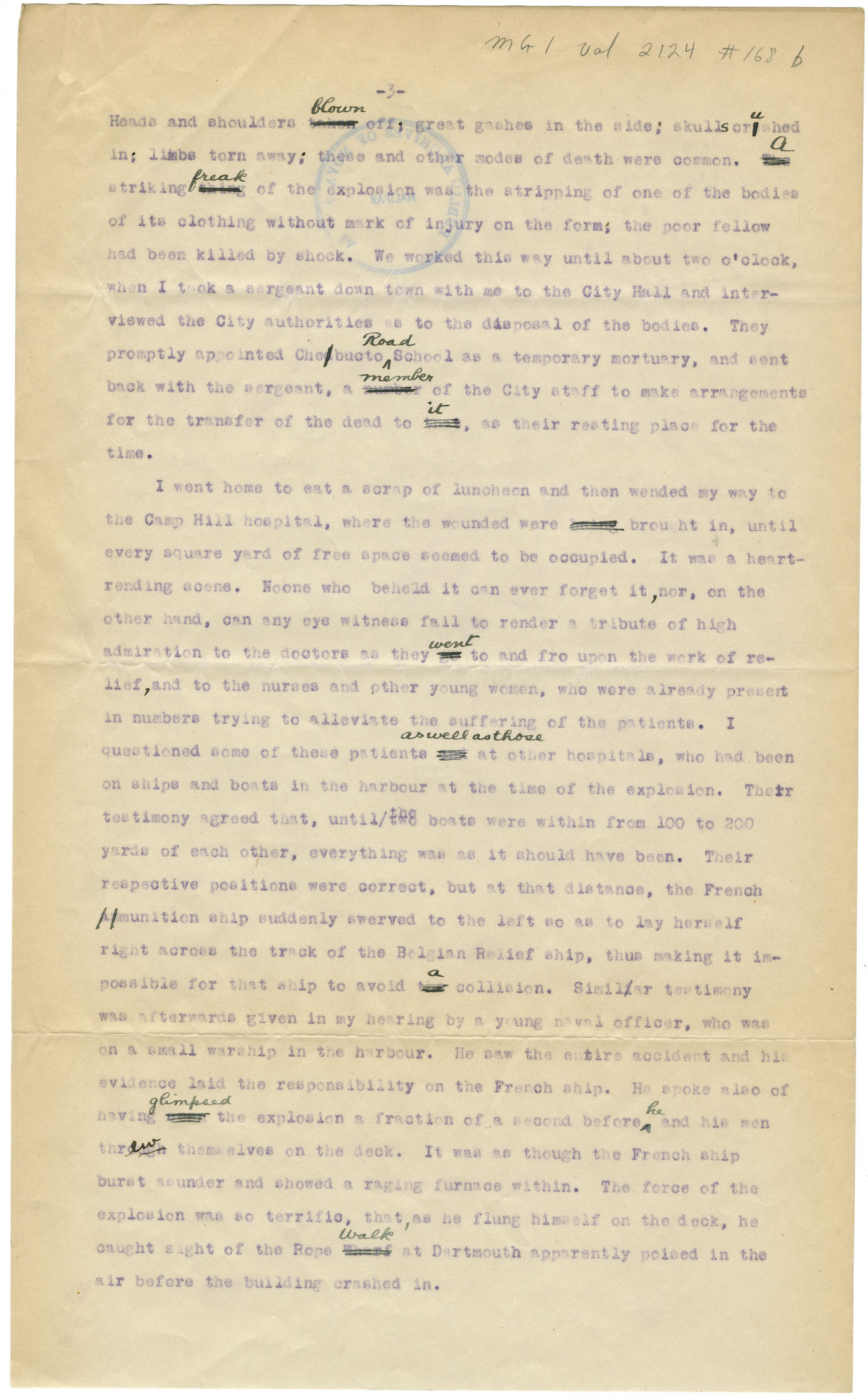Nova Scotia Archives
Archibald MacMechan
Halifax Disaster Record Office Materials
Personal narrative - J.P.O. Llwyd
28 December 1917. — 4 pages : 30 x 49 cm.
note: transcription publicly contributed - please contact us with comments, errors or omisions
-3-
Hands and shoulders blown off; great gashes in the side; skulls crushed in; limbs torn away; these and other modes of death were common. A striking freak of the explosion was the stripping of one of the bodies of its clothing without mark of injury on the form; the poor fellow had been killed by shock. We worked this was until about two o'clock, when I took a segeant down town with me to the City Hall and interviewed the City authorities as to the disposal of the bodies. They promptly appointed Chebucto Road School as a temporary mortuary, and sent back with the sergeant, a member of the City staff to make arrangements for the transfer of the dead to it, as their resting place for the time.
I went hom to eat a scrap of luncheon and then wended my way to the Camp Hill hospital, where the wounded were brought in, until every square yard of free space seemed to be occupied. It was a heart-rending scene. No one who beheld it can ever forget it, nor, on the other hand, can any eye witness fail to render a tribute of high admiration to the doctors as they went to and fro upon the work of relief, and to the nurses and other young women, who were already present in numbers trying to alleviate the suffering of the patients. I questions some of those patients as well as those at other hospitals, who had been on ships and boats in the harbour at the time of the explosion. Their testimony agreed that, until the boats were within from 100 to 200 yards of each other, everything was as it should have been. Their respective positions were correct, but at that distance, the French munition ship suddenly swerved to the left so as to lay herself right across the track of the Belgian Relief ship, thus making it impossible for that ship to avoid a collision. Similar testimony was afterwards given in my hearing by a young naval officer, who was on a small warship in the harbour. He saw the entire accident and his evidence laid the responsibility on the French ship. He spoke also of having glimpsed the explosion a fraction of a second before he and his men threw themselves on the deck. It was as though the French ship burst asunder and showed a raging furnace within. The force of the explosion was so terrific, that, as he flung himself on the deck, he caught sight of the Rope Walk at Dartmouth apparently poised in the air before the building crashed in.
Dean of Nova Scotia.
Reference: Archibald MacMechan Nova Scotia Archives MG 1 volume 2124 number 168

